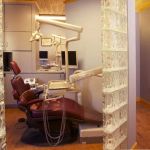How to Treat a Chipped or Cracked Tooth: Expert Tips and Treatment Options
- 1. What is a Chipped or Cracked Tooth?
- 2. Causes of Chipped or Cracked Teeth
- 3. How to Treat a Chipped or Cracked Tooth
- 4. Professional Treatment Options for Cracked Teeth
- 5. Home Remedies for Cracked Teeth
- 6. Real-Life Cracked Tooth Experiences
- 7. Prevention and Care Tips for Healthy Teeth
1. What is a Chipped or Cracked Tooth?
A chipped or cracked tooth is a common dental problem that can occur due to a variety of factors, including accidents, biting down on something hard, or even just wear and tear over time. A chipped tooth refers to a small piece of the tooth breaking off, while a cracked tooth can involve a more significant fracture that may go deeper into the tooth structure. Cracked teeth often cause sensitivity, pain, and may require immediate attention to prevent further damage or infection.
2. Causes of Chipped or Cracked Teeth
There are several reasons why a tooth may chip or crack. Some of the most common causes include:
- Accidents and injuries: A blow to the face or a fall can easily cause a tooth to chip or crack.
- Biting hard objects: Chewing on ice, hard candies, or nuts can put undue stress on your teeth, resulting in cracks.
- Bruxism (teeth grinding): Grinding your teeth, especially during sleep, can weaken the tooth enamel, leading to chips or cracks.
- Age: As you age, your tooth enamel can become thinner, making your teeth more vulnerable to damage.
3. How to Treat a Chipped or Cracked Tooth
If you experience a chipped or cracked tooth, it’s essential to take immediate action to reduce discomfort and avoid further damage. Here are some first-aid steps:
- Rinse with warm water: Gently rinse your mouth with warm water to clean the affected area and reduce the risk of infection.
- Apply a cold compress: If there’s swelling, apply a cold compress to your cheek to reduce inflammation.
- Take pain relievers: Over-the-counter pain relievers can help alleviate discomfort until you see a dentist.
- Cover the sharp edge: If the chip or crack has left a sharp edge, you can temporarily cover it with a piece of dental wax or sugar-free gum to prevent it from cutting your tongue or cheek.
4. Professional Treatment Options for Cracked Teeth
While at-home care can help manage discomfort, it’s essential to visit a dentist for proper treatment. Here are some professional treatment options for chipped or cracked teeth:
- Bonding: For minor chips, your dentist may use a tooth-colored resin to bond the broken area back together.
- Crowns: If a large portion of the tooth is cracked or damaged, a dental crown can be placed over the tooth to restore its function and appearance.
- Root canal: If the crack extends into the pulp of the tooth, a root canal may be necessary to remove the infected tissue and save the tooth.
- Extraction: In severe cases, if the tooth is too damaged to save, the dentist may recommend extracting the tooth and replacing it with a dental implant or bridge.
5. Home Remedies for Cracked Teeth
While professional treatment is essential for long-term solutions, some home remedies can help manage discomfort in the meantime:
- Saltwater rinse: Gargling with warm saltwater can help reduce inflammation and kill bacteria around the cracked tooth.
- Clove oil: Applying clove oil to the affected area can temporarily numb the pain due to its natural analgesic properties.
- Avoid hot and cold foods: To reduce sensitivity, try to avoid consuming hot or cold foods and drinks that might trigger discomfort.
6. Real-Life Cracked Tooth Experiences
Many people have experienced chipped or cracked teeth at some point in their lives. One individual, Sarah, recalls cracking her tooth while eating a popcorn kernel. She was in significant pain and sought immediate treatment from her dentist. Thanks to prompt attention, her dentist performed a root canal and placed a crown, restoring the tooth's function and relieving the pain. Another case involved John, who had been grinding his teeth at night, unknowingly causing micro-cracks that eventually led to a more significant fracture. His dentist recommended using a nightguard to prevent further damage and a dental crown to restore the tooth.
7. Prevention and Care Tips for Healthy Teeth
To prevent chipped or cracked teeth in the future, follow these tips:
- Avoid biting hard objects: Be mindful of chewing on hard foods or objects like ice, pens, or fingernails.
- Wear a nightguard: If you grind your teeth at night, wearing a custom nightguard can protect your teeth from damage.
- Maintain good oral hygiene: Brushing and flossing regularly help keep your teeth healthy and strong, reducing the risk of cracks and decay.
- Visit your dentist regularly: Regular dental check-ups allow your dentist to identify any signs of wear and tear early and take action to prevent further damage.







 Fifth Avenue Dental4.0 (750 review)
Fifth Avenue Dental4.0 (750 review) North Suburban Dental of Mundelein4.0 (341 review)
North Suburban Dental of Mundelein4.0 (341 review) Phoenixville Dental4.0 (308 review)
Phoenixville Dental4.0 (308 review) Nu Smile Aligner5.0 (1 review)
Nu Smile Aligner5.0 (1 review) Dunstan Dental Center LLC4.0 (59 review)
Dunstan Dental Center LLC4.0 (59 review) Fontana Dental Clinic4.0 (470 review)
Fontana Dental Clinic4.0 (470 review) The Importance of Oral Health Education During Pregnancy for a Healthy Pregnancy
The Importance of Oral Health Education During Pregnancy for a Healthy Pregnancy Best Tips for Brushing Your Teeth Properly for Healthy Gums: Essential Techniques for Oral Health
Best Tips for Brushing Your Teeth Properly for Healthy Gums: Essential Techniques for Oral Health Why Skipping Dental Checkups Can Lead to Bigger Oral Health Problems
Why Skipping Dental Checkups Can Lead to Bigger Oral Health Problems Advantages of Porcelain Dental Restorations
Advantages of Porcelain Dental Restorations How Can Diabetes Cause Tooth and Gum Problems? Preventing and Managing Oral Health Issues
How Can Diabetes Cause Tooth and Gum Problems? Preventing and Managing Oral Health Issues Healthy Habits for Promoting Good Oral Health and Hygiene: Tips for a Healthy Smile
Healthy Habits for Promoting Good Oral Health and Hygiene: Tips for a Healthy Smile